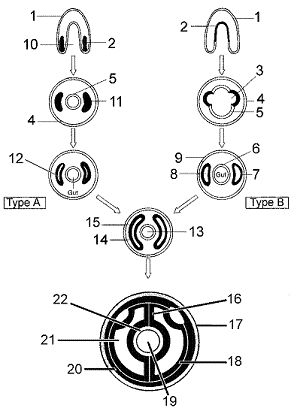Refer to Figure 30-1. The development pattern labeled Type B is characteristic of:

a. arthropods.
b. platyhelminths.
c. cnidarians.
d. echinoderms.
e. annelids
D
You might also like to view...
Which of the following produce lactic acid?
A. Lactobacillus B. Leuconostoc C. Streptococcus D. Lactococcus E. All of the choices are correct
Individuals with xeroderma pigmentosum inherit a faulty DNA repair mechanism. As a consequence,
they
a. are sterile. b. have no proofreading during DNA replication. c. cannot join the Okazaki fragments produced during DNA replication. d. easily develop skin cancer when exposed to sunlight. e. lose part of the DNA on the ends of chromosomes during each round of DNA replication.
The periosteum of a long bone
a. Is inside the epiphyses b. Completely covers the bone, except on the ends. c. Is on the inside the medullary cavity d. Is located in the bone marrow
When the internal urethral sphinceter doesn't work and semen goes into the bladder it is called what?
What will be an ideal response?